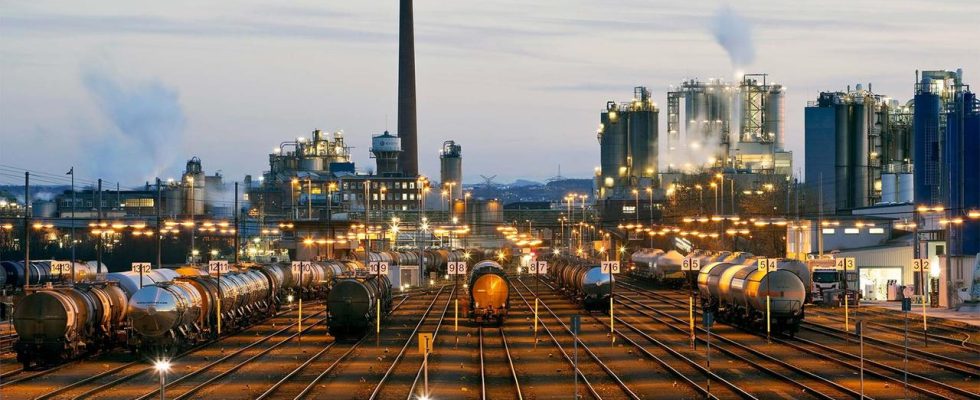The mood in the executive floors of the German economy has deteriorated for the third time in a row. Concerns about the economy are becoming more and more urgent, and there is currently no sign of a recovery.
At the beginning of the second half of the year, the mood in the German economy took a surprising turn for the worse. The ifo business climate fell in July from 88.6 points in the previous month to 87.3 points and thus for the third time in a row, as the Munich ifo institute announced today in its survey of around 9,000 executives. Experts had expected a weaker decline.
The business climate clouded over in all areas under review. In the construction industry, the indicator fell to its lowest level since February 2010. The industry has been suffering from the sharp rise in interest rates and high construction costs for a long time. “The situation in the German economy is getting darker,” said ifo President Clemens Fuest. Companies were noticeably more dissatisfied with current business in particular. Business expectations also fell again.
No bright spots in the industry
According to the ifo Institute, Germany is now threatened with a “summer recession” after the so-called “winter recession”. “The weak phase of the German economy is being extended,” said Klaus Wohlrabe, head of the ifo survey. Gross domestic product is expected to fall in the current third quarter after having roughly stagnated in the spring.
One reason for the misery is the continuing weakness of the industry. “The companies can process the existing orders better because the delivery bottlenecks are continuously decreasing,” said Wohlrabe. “But fewer new orders are coming.”
There are hardly any rays of hope in the industry. In the meantime, the mechanical engineering and electrical engineering sectors and the chemical industry have also been weakening for some time. Foreign demand is also rather meager. “No momentum is to be expected from the export side,” said the ifo expert.
economy sends recession signals
The German economy shrank at the end of 2022 and beginning of 2023 compared to the previous quarter and has been in a so-called technical recession ever since. According to the Bundesbank, the economy should pick up again slightly in the second quarter. But the risk of a recession lasting into late summer has increased dramatically. The most recent purchasing manager indices fit in with this. These signal that the economy may have contracted given a slump in orders at the beginning of the second half of the year.
For Jörg Krämer, chief economist at Commerzbank, the broad-based decline in the leading indicators points to a “renewed contraction of the German economy in the second half of the year”. “There are also signs of recession in the rest of the euro zone,” said Kramer. And Jens-Oliver Niklasch, economist at LBBW, states: “We’re in a recession and won’t get out of it any time soon.”
“Full braking effect of tighter monetary policy”
Jörg Zeuner, chief economist at Union Investment, takes a look at the connection between the economy and the stock market: “The fact that the ifo business climate index continues to fall, but the stock market prices are going up again shows once again that the real economy and financial markets are closely intertwined, but are not always mirror images of each other.”
While the capital markets would anticipate the end of the rate hike cycle and looked with great hope to the topic of artificial intelligence, according to Zeuner, the full braking effect of the tighter monetary policy is now having an impact on the real economy. “That’s why we continue to expect little momentum in the economy this year.”

